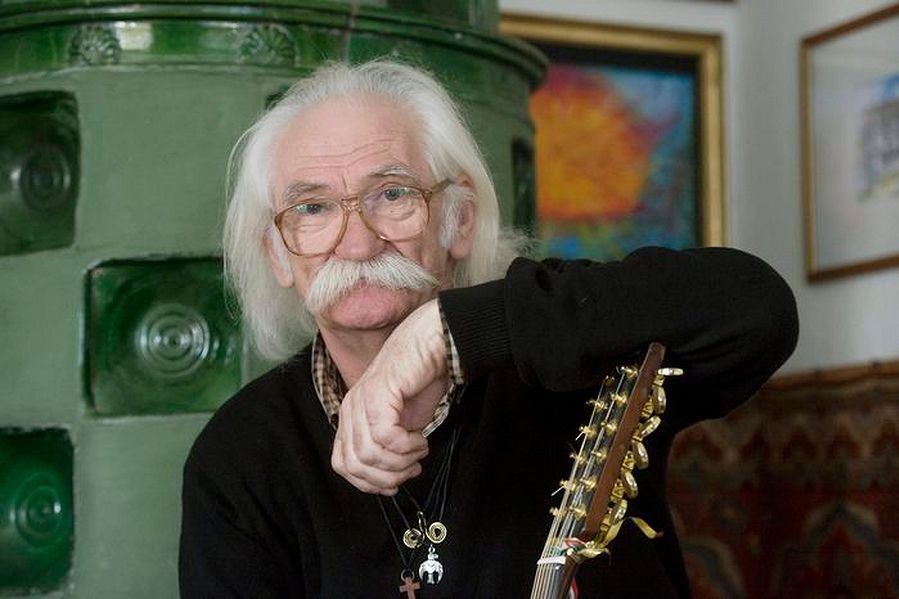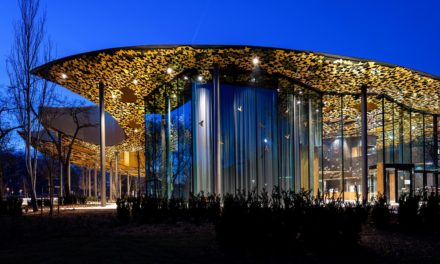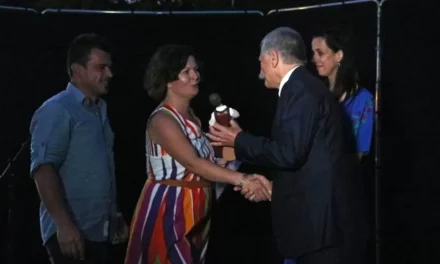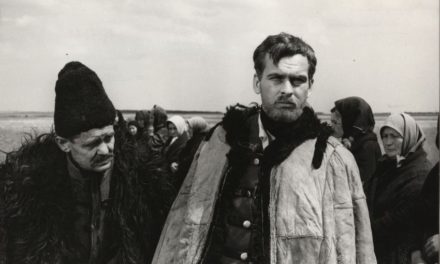Béla Tolcsvay, Kossuth Prize-winning guitarist, singer, composer, lyricist, founder of Tolcsvay Trio We salute him, may God give him long life!
"I have been singing and playing music about my Hungarianness and loyalty in my performances for several decades. It's touching to me that others have noticed this too," said Béla Tolcsvay.
The guitarist, singer, composer, and lyricist received the Kossuth Award in 2015 in recognition of his unique style and versatile career as a songwriter and performer, based on the traditions and traditional beliefs of ancient Hungarian culture.
"I consider myself a singer, my role is a bit like that of Sebestyen Tinódi Lantos or Bálint Balassi at the time. When I also performed with a guitar from 1974, I realized how much responsibility I have to say on stage. I feel it is my duty to pass on to people the cultural direction and knowledge that I profess and believe in. I also took seriously what is written on the facade of the Ferenc Móra Museum in Szeged: public education," explained Béla Tolcsvay.
The speaker was born in Budapest on November 6, 1946. He learned to play the cello from 1952. In the first half of the 1960s, he started out as a beat musician, was a member of the band Strangers, then Wanderers, and then the Tolcsvay Trió, founded with his younger brother László and Gábor Balázs, began to incorporate folk music motifs into his songs.
"We wrote our first song with Laci in 1966, it was Ne menj el, from the following year we played on the Express cocktail ship, and in 1968 we won Ki mit tud? as a folk-beat group. Beat music is also based on Anglo-Saxon folklore, our harmonies brought back the world of Hungarian folk songs," recalled the musician.
In 1973, Béla Tolcsvay was the organizer of the first Hungarian pop festival in Miskolc, he appeared in the KITT Association (this was the joint name of Zsuzsa Koncz, the band Illés, and Tolcsvay and the Trió), then at the end of 1973 he was invited to join the band Fonógráf, but he did not go. "My photographer friend Albert Kresz and I went to Transylvania in 1974, and there, in Gyimes, I met, one might say deeply, the music that determined my further path".
After reorganizing the Tolcsvay Trio, he wrote theater music from the mid-seventies, participated in literary evenings, created a song play, and together with his brother, László, composed a rock oratorio entitled Magyar mise.
"I learned from a lot of people. The traditions of the ancient Hungarian culture, the traditional world of faith, had a serious impact on the assembled style that I developed.
It was also in Transylvania and more than forty years ago that I heard the folk tale "Az égi erü fa" (Az égi erü fa fa) from a Székely woman from Bukovina in the delicious vernacular in Székelykakasdon. The performance had such an impact on me that I decided to turn it into a musical storybook for children. It later turned into a show with which I toured the country for decades," said Béla Tolcsvay.
In 2011, the show became a song-and-dance play entitled Az ég prámátő fa, as a joint work with Melinda Béres. "This is a kind of summary of my decades of work. Before, I was always interested in how I could work together with young people, this work was also created together with a young author".
As he emphasized, meeting national cultures was a decisive experience for him during his travels.
"Thanks to this, I have kept what red-white-green tastes like. If I sing anywhere in the world, people say that people with very beautiful souls live where I came from".
Béla Tolcsvay regularly performs solo as well as with the Tolcsvay Trio, in which since 1993 Tibor Czipó (bass guitar) and László Egri (lead guitar) are his companions.
"New songs are still being created today, but the style and sound world is the same," said Béla Tolcsvay.
His last work, Aranyfényű asszony, a folk ritual play, was presented in 2015 in Vere. In 2019, his work was also recognized with the Middle Cross of the Hungarian Order of Merit /civil division/.
Source: ATEMPO.sk / MTI
Photo: MTI / Szilárd Koszticsák













